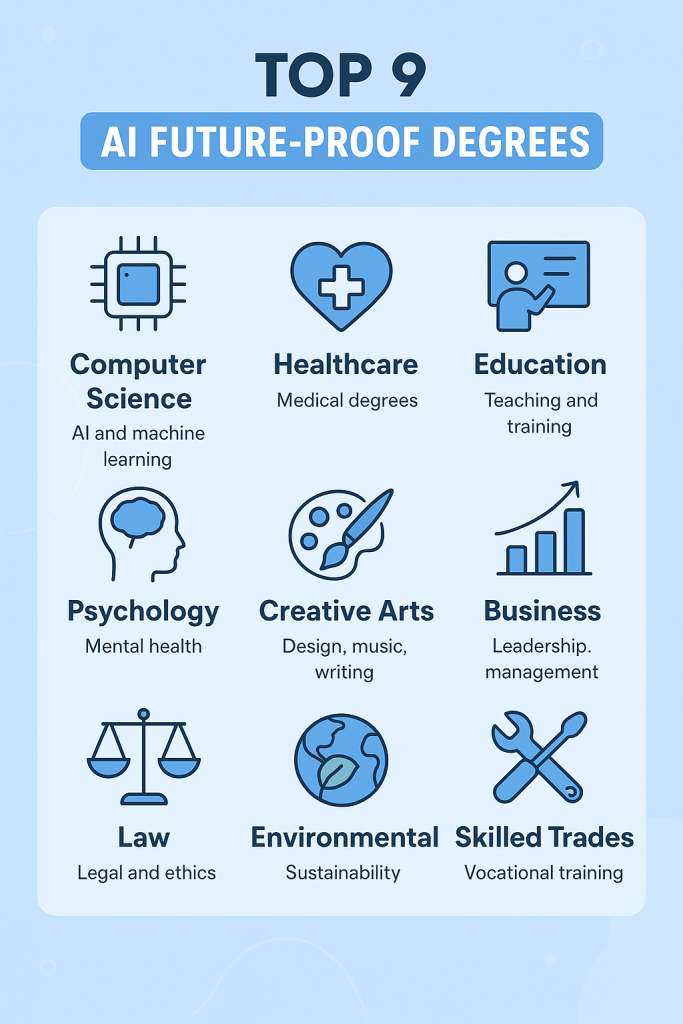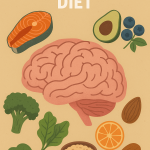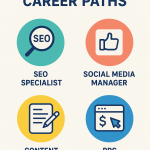Introduction
Artificial intelligence is transforming industries at a speed we’ve never seen before. From self-driving cars to generative AI tools that write code, design graphics, and analyze data, the workplace is shifting rapidly. Many students and professionals are asking the same question: What are the best AI future-proof degrees?
Choosing a degree that remains valuable in an AI-driven world is one of the smartest decisions you can make today. The focus is no longer just on technical skills; it’s about developing a mix of critical thinking, creativity, problem-solving, and adaptability that machines can’t easily replicate. In this post, we’ll dive into which AI future-proof degrees will give you a competitive edge, why they matter, and how to future-proof your career against automation.
Why AI is Changing the Education and Career Landscape
AI is advancing so quickly that many jobs we once thought were secure are now automated or being transformed. According to a 2023 report by Goldman Sachs, AI could replace the equivalent of 300 million full-time jobs globally, while also creating new opportunities in emerging industries.
This doesn’t mean all careers are doomed—it means the job market is evolving. Degrees that emphasize uniquely human skills—creativity, leadership, empathy, complex problem-solving, and interdisciplinary knowledge—are far less likely to be replaced by machines.
In fact, McKinsey’s Future of Work report highlights that while automation will handle predictable tasks, demand for STEM, healthcare, and social-emotional skill sets will continue to grow.
What Makes a Degree “Future-Proof” in the Age of AI?
To identify AI future-proof degrees, we need to ask: What skills and knowledge can’t AI replicate?
Here are the main characteristics of future-proof fields:
- Human-centered skills: Emotional intelligence, empathy, and communication.
- Complex problem-solving: Ability to analyze novel problems that lack clear data-driven solutions.
- Creativity & design thinking: Original ideas, innovation, and aesthetic judgment.
- Interdisciplinary expertise: Combining technology with human knowledge.
- Adaptability: Skills that allow professionals to pivot as industries evolve.
Degrees that nurture these qualities are the ones that will thrive in an AI world.
The Top AI Future-Proof Degrees
Let’s break down the degrees most likely to hold value in the AI age.
1. Computer Science with a Focus on AI and Machine Learning
If AI is shaping the future, why not study the engine behind it? A degree in computer science—especially with a concentration in AI, machine learning, or data science—ensures you’ll always be relevant in the digital economy.
- Why it’s future-proof: You’ll be part of the teams building, training, and improving AI systems.
- Skills gained: Algorithms, neural networks, natural language processing, data analysis.
- Career opportunities: AI researcher, data scientist, software engineer, AI ethics consultant.
💡 Study Insight: A World Economic Forum study predicts *AI specialists and data scientists will be among the fastest-growing career roles through 2030.
2. Healthcare and Medical Degrees
Healthcare is one of the industries least likely to be fully automated. While AI can assist with diagnostics and robotic surgery, human empathy, ethical judgment, and bedside manner remain irreplaceable.
- Why it’s future-proof: AI enhances healthcare—it doesn’t replace doctors, nurses, or therapists.
- Top degrees: Nursing, medicine, psychology, physical therapy.
- Career opportunities: Physician, nurse practitioner, mental health counselor, allied health professional.
💡 Study Insight: According to the U.S. Bureau of Labor Statistics, healthcare jobs will grow 13% from 2021–2031, much faster than average.
3. Education and Human Development
AI can deliver information, but it struggles to nurture human growth and motivation in the way educators can. Teachers, counselors, and trainers are essential for fostering creativity, critical thinking, and interpersonal skills.
- Why it’s future-proof: AI is a tool in education, not a replacement for the human connection.
- Top degrees: Education, early childhood development, educational psychology.
- Career opportunities: Teacher, learning experience designer, corporate trainer, educational consultant.
4. Psychology and Mental Health
Mental health awareness is on the rise globally, and AI can’t replace the deep empathy and human connection required for effective therapy.
- Why it’s future-proof: Humans will always need other humans to guide them through trauma, personal growth, and emotional health.
- Top degrees: Clinical psychology, counseling, social work.
- Career opportunities: Therapist, counselor, organizational psychologist.
💡 Study Insight: The American Psychological Association reports that demand for mental health professionals surged 40% post-pandemic.
5. Creative Arts and Design
AI can generate images, music, and even stories—but it lacks the depth of human imagination. Audiences crave authentic, human-created art.
- Why it’s future-proof: Creativity isn’t just about producing content—it’s about cultural meaning and emotional resonance.
- Top degrees: Fine arts, graphic design, music, film, writing.
- Career opportunities: Artist, designer, filmmaker, author, creative director.
💡 Study Insight: Studies show humans can usually distinguish between AI-generated and human-created art, and they value human art more highly.
6. Business, Leadership, and Management
AI can process data, but it can’t inspire, lead, or negotiate in high-stakes business settings. Leadership remains deeply human.
- Why it’s future-proof: Businesses will always need leaders with vision, strategy, and ethical judgment.
- Top degrees: Business administration, management, entrepreneurship, MBA.
- Career opportunities: Executive, project manager, entrepreneur, strategist.
7. Law and Ethics in the AI Era
AI is creating new legal and ethical challenges around privacy, data security, and intellectual property. Human expertise in these areas will be critical.
- Why it’s future-proof: AI cannot interpret moral nuance or societal values.
- Top degrees: Law, ethics, public policy.
- Career opportunities: Lawyer, AI policy advisor, compliance officer, ethicist.
8. Environmental and Sustainability Studies
As climate change intensifies, sustainability experts are in high demand. AI can model scenarios, but humans must lead on policy, ethics, and long-term strategies.
- Why it’s future-proof: Global environmental issues require interdisciplinary, human-centered solutions.
- Top degrees: Environmental science, sustainability, renewable energy.
- Career opportunities: Climate scientist, environmental policy maker, sustainability consultant.
9. Skilled Trades and Human-Centered Professions
Plumbers, electricians, chefs, and carpenters are surprisingly future-proof. While AI can guide processes, physical, hands-on skills require human dexterity.
- Why it’s future-proof: You can’t outsource home repairs or custom craftsmanship to AI.
- Top degrees: Vocational training, culinary arts, technical certifications.
- Career opportunities: Electrician, chef, builder, artisan.
How to Future-Proof Any Degree
Even if your degree doesn’t appear on this list, you can make it more AI-resilient by following these strategies:
1. Focus on Lifelong Learning
Keep updating your skills through online courses, certifications, and workshops.
2. Embrace Interdisciplinary Knowledge
Pair your degree with AI literacy or digital tools. For example, a marketing graduate can study AI-driven analytics.
3. Strengthen Human Skills
Empathy, negotiation, and creative problem-solving will always be in demand.
4. Build Digital Fluency
Even non-tech careers will benefit from AI awareness.
The Role of AI in Enhancing, Not Replacing, Your Career
It’s important to remember that AI is a tool. It enhances productivity, analyzes data, and automates repetitive tasks—but it doesn’t replace uniquely human qualities.
For example:
- Doctors use AI to spot tumors more accurately.
- Teachers use AI to personalize learning.
- Writers use AI tools for brainstorming, not replacing creativity.
The future isn’t humans versus AI—it’s humans with AI.
Conclusion: Choosing the Right AI Future-Proof Degree
When considering your career path, think beyond automation. The best AI future-proof degrees combine technical knowledge with human-centered skills. Whether you choose healthcare, business, education, psychology, or environmental science, focus on adaptability and lifelong learning.
Artificial intelligence will keep evolving, but so will we. By choosing the right degree today, you’re not just preparing for the next five years—you’re securing your place in the workforce for decades to come.
Related Resource
Looking to align your education with future career opportunities? Discover how digital entrepreneurship is opening new doors in the age of AI. Read our full guide on why you should look into online business to explore flexible paths that complement future-proof degrees.



